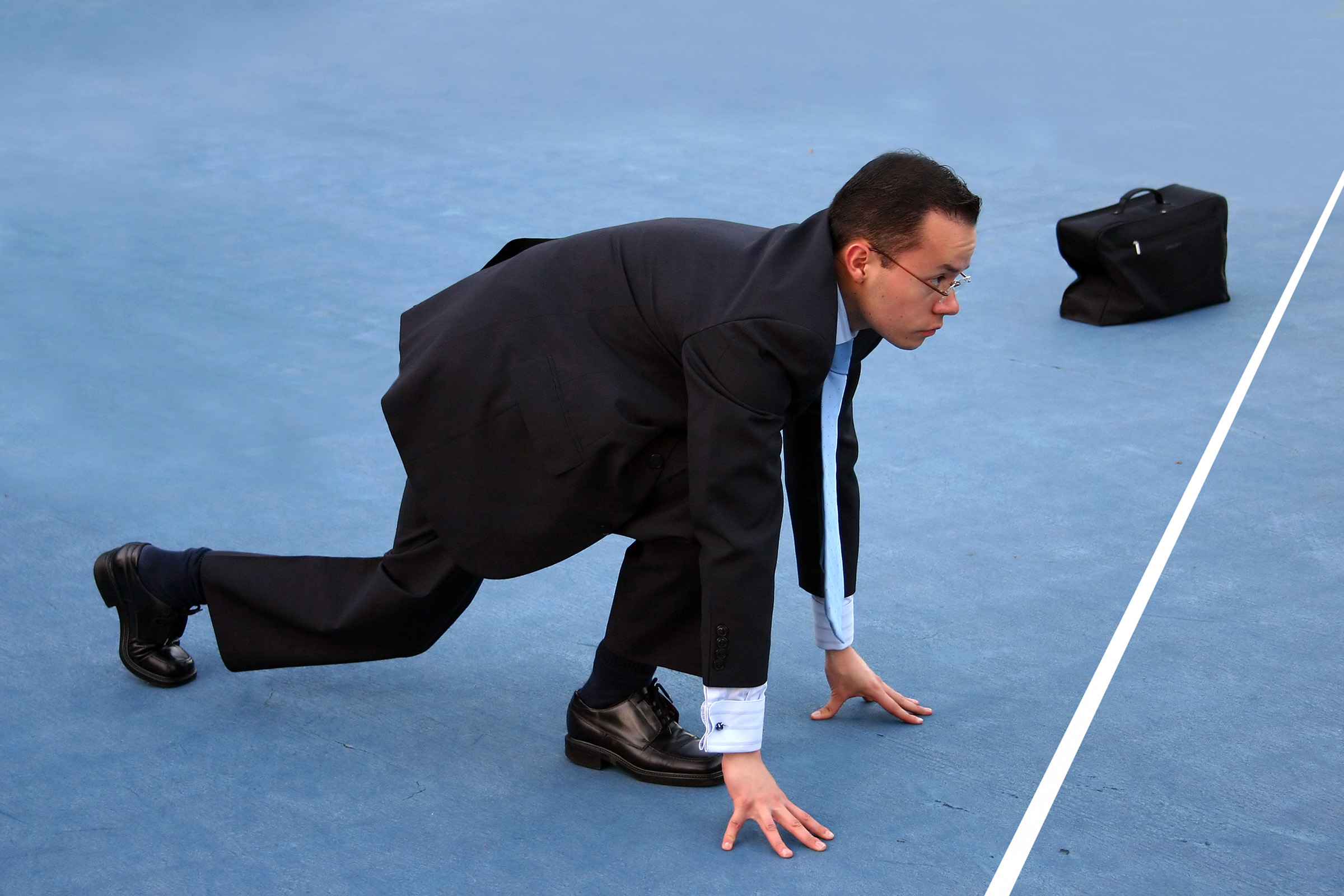Do you have a problem with procrastinating and getting things done?
Do you often fall short of realizing your goals?
Perhaps you started this year strong, meeting all your daily and weekly goals, and then quickly fell off the wagon.
Perhaps you’re reverting back to old patterns and instead of taking two steps forward and one back, you’re taking two back and one forward.
If so, then you’re not alone.
Reality has a tendency to lull us back to sleep. Every time we make headway and make great strides towards our goals, something pulls us back and we find ourselves again drifting.
What can be done so that we don’t get comfortable in old habits and continue to trek forward despite the lull of life?
In this post, I’ll show you how to stop procrastinating and get things done once and for all.
Meeting Your Opponent: Resistance
In the book “Do the Work”, Stephen Pressfield refers to this counter force as resistance.
Resistance is not a new foe. It’s been there all your life — every time you start a new diet, running routine, morning routine, weight training regimen, writing and so on.
Resistance has one job and it’s very good at it: to maintain the status quo. It’s job is to protect you from the “unknown” so you don’t hurt yourself — so that you’re safe and protected from those malevolent external forces. In other words, it’s protecting your ego.
But here’s the problem: all learning, progress and creativity happens in the unknown. Would you rather stay safe and protected — a false sense of comfort — or be in the unknown and figure out your way.
Achieving your goals and visions — although uncomfortable — is ultimatley fulfilling. Think about the last time you completed a big project like writing a book, or even an epic blog post. How did you feel afterwards? Did you feel a sense of relief and upliftment?
What is resistance exactly?
In order to beat resistance — at least temporarily — we need to first know what it is.
Here’s one way to get your head around the concept of resistance.
You may recall Newtons first law of motion: a body at rest tends to stay at rest and a body in motions tends to stay in motion.
This is a fairly intuitive concept to grasp and something you probably didn’t have a hard time understanding when you first learnt it.
Unless you move a billiard ball, it will remain in the same place. But move it, and it will keep rolling. The only thing that stops it is friction. If friction isn’t present, then the ball would keep rolling indefinitely.
So this friction — or resistance rather — is what’s holding us back from moving forward. It’s a force thats sole aim is to stop us from moving forward.
However, once you remove the friction, it’s easy to keep up the speed and momentum.
So what is the key to removing this friction?
Focus.
It’s the mother of all skills to be learned and is the true key to beating resistance, procrastination and getting work done.
Focus is a skill that can be learned. It’s like training a muscle. The more you train it, the bigger it will get and the less work you’ll need to do move something. In other words, you’ll get stronger over time.
When you develop a focus, you’re able to work longer and deeper.
Most people can’t focus for more than a few seconds without getting distracted. This is a real problem. If you’re constantly distracted and unfocused, how is it possible to get into a deep state of flow?
Every time you get distracted from the work — say you check email or Youtube or text message every few minutes — you’ll find it nearly impossible to get work done at a deeper level.
Not only that. Every time you switch between tasks, there’s a residue left over from the task you were doing, so a part of your mind is still thinking about it. In other words, when you’re distracted and multi-tasking, you’re not actually able to get into the flow. You’re operating at a very surface level and although it may seem you’re getting things done, you’re actually wasting a lot of time.
Use the Pareto Principle to Beat Procrastination
You can use the Pareto principle for virtually anything — meditation, writing, yoga, weight training.
The Pareto principle is designed to help you overcome procrastination and get into deep states of flow.
The idea is this: you work for a set amount of time and then take a short break. You repeat this process until you get all your tasks done.
For example, you can set a timer for 25 minutes and then take a 5 minute break.
By using this technique, you block everything out. It’s the most effective technique I’ve found that helps me get things done. Every day I’ll do 3 or 4 Pomodoros of 45 minutes each with 15 minute breaks.
While you’re working, make sure to eliminate all other distractions. If your phone is your biggest distraction, then shut it down or put it in another room during the session so you don’t get pulled.
Turn off all notifications on your desktop so you’re not constantly being pulled away from the work.
If you’re writing an email or blog post, use a distraction-free writing tool like Ommwriter or Ulysses or Google Docs.
If certain websites distract you, then use a tool like Freedom or Self-Control App. These apps will allow you to block specific sites for a set time — say an hour — so you won’t be able to access them while it’s active.
This for me has been the biggest help. When you know that you can’t do anything else, my mind will naturally have nothing else to do but get to work.
Conclusion:
As much as we’d like it to, resistance will never fully go away unfortunately. It’s a deeper aspect of our selves and subconscious mind. But you need to keep it in check — every day. It’ll pop up every time and although it will lose some of its power as you develop the habits, you can quickly find yourself falling back into old patterns if you don’t stay focused.
So do the work, but always stay vigilant and mindful. Use whatever tools, tricks and techniques to help you beat resistance. Over time, you’ll become better at realizing its tricks and patterns, and you’ll be able to move into deeper states of flow to get more work done.
As you complete your projects and actually get things done and gain momentum, you’ll start to feel much more fulfilled. Even the process of working will become an enjoyment.




